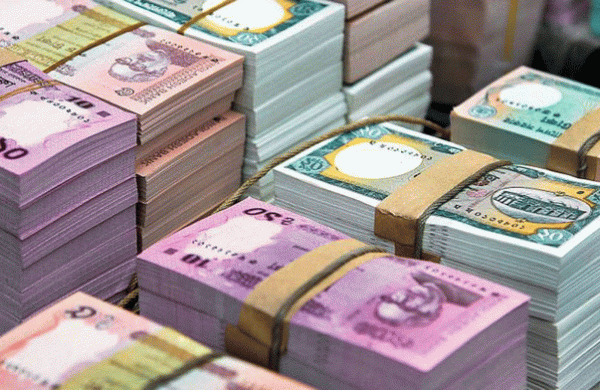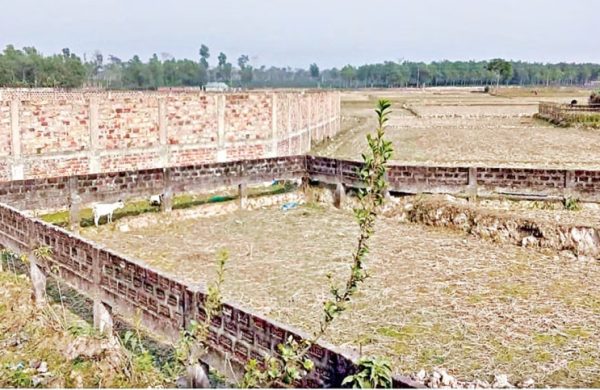BDT 2.34 trillion stashed in the pockets of bank directors
- Update Time : Tuesday, December 3, 2024

TDS Desk
The banking sector of the country suffered the most during the tenure of the previous government, a fact highlighted in the White Paper Committee’s report.
Allegations have been made regarding the involvement of several bank chairmen in undermining the sector, including claims of collusion. Incidents such as loans being disbursed in the names of others, money laundering abroad, and even the changing of bank ownerships under duress have also been reported.
As a result, institutional governance in the banking sector has collapsed, a situation that is now bearing a heavy toll on both the banks and the general public.
According to data from Bangladesh Bank, as of August 20, the total amount of loans extended to bank directors stands at BDT 2,33,885 crore. In 2016, this figure was approximately BDT 90,000 crore, indicating a nearly 160% increase in loans over the past eight years.
Currently, the country is home to 52 domestic and private banks, as well as 9 foreign banks. While the total number of directors across these banks is 760, over a hundred directors engage in large-scale, collusion-based loan dealings, with a dozen of them being particularly controversial. These individuals effectively hold the banking sector in their grip.
Following the establishment of the Interim Government, Bangladesh Bank dissolved the boards of directors of 11 banks. Among them, eight banks were under the grip of a single group. In these banks, the group’s owner, his son, family members, or favored individuals were appointed as chairmen.
Additionally, during the previous government tenure, many took advantage of their influence to obtain loans at will. Some even colluded to waive loan interest, among other irregularities, with the chairman of one bank offering favors to the chairman of another. A Bangladesh Bank official revealed that the looting by directors in the banking sector has been ongoing for an extended period.
To curb this looting, Bangladesh Bank has implemented strict regulations prohibiting directors from borrowing from their own banks. As a result, directors have turned to collusion, securing substantial loans from each other’s banks.
Additionally, directors who benefit from these arrangements are also providing support by facilitating loans from their own banks.
In short, bank directors were deeply involved in a coordinated looting scheme.
According to Bangladesh Bank data, directors previously took out the majority of their loans from their own banks. Under central bank regulations, directors are now restricted from borrowing more than 50% of their total shares from their own bank.
However, there are no such restrictions on borrowing from other banks.
As a result, directors are now colluding to take loans from each other’s banks, while also exerting influence to secure various benefits.
In some cases, directors are concealing their loan details by establishing shell companies under fictitious names. These companies are often owned by the directors’ relatives or acquaintances. In some instances, directors have even used the names of their drivers or assistants to mask the ownership.
According to the data, directors have taken loans worth BDT 1,340 crore from their own banks.
However, they have borrowed approximately BDT 2,32,545 crore from other banks.
This brings the total amount of loans taken by bank directors to BDT 2,33,885 crore.
A significant portion of these loans is classified as non-performing, amounting to nearly BDT 1,000 crore.
Economists say that while the loans taken in the names of directors total around BDT 2.5 lakh crore, the actual amount of debt they are responsible for is much higher.
Over the past 15 years, the country’s leading business figures have established numerous shell companies under fictitious names. If the total loans of these companies are taken into account, the directors’ total debt could surpass BDT 5 lakh crore.
A recent report from the central bank reveals that out of 61 public and private banks, 58 have extended loans worth billions of taka to their directors. Among these, 16 banks have provided over BDT 5,000 crore in loans to directors from various banks. Additionally, the directors of two banks have taken loans exceeding BDT 1 crore from their own institutions.
Private sector banks dominate the list for borrowing from their own institutions, with directors of one particular bank having taken nearly BDT 1,251 crore in loans from their own bank.
Bankers argue that the overall administrative system of the banking sector is in disarray due to the illegal and unethical pressure exerted by directors on the management. This reckless influence has led to an unprecedented rise in corruption and irregularities. With the number of banks and financial institutions in the country exceeding the national need, there is a rampant scramble for various illicit benefits. Unprecedented corruption is also taking place in recruitment processes.
Every public and private bank is now rife with off-book loans, with managing directors being forced to approve loans under pressure from directors.
Dr. Zahid Hussain, former Chief Economist of the World Bank’s Dhaka mission, remarked, “The government has already begun taking action against banks involved in disbursing loans through various means. To my knowledge, there are inherent weaknesses in the Banking Company Act concerning loans to directors, which allows them to coordinate and secure loans in different ways. Therefore, it is essential to implement measures to prevent the future misuse of these legal provisions.”
A review of data from various banks reveals that private sector’s Islami Bank is at the top for providing the most benefits and loans to its directors, with loans amounting to nearly BDT 27,000 crore.
In second place, Pubali Bank’s directors have taken loans worth BDT 17,000 crore.
State-owned Janata Bank ranks third, with loans exceeding BDT 13,500 crore.
Exim Bank holds the fourth position, with loans of around BDT 13,500 crore.
United Commercial Bank (UCB) rounds out the top five, with loans amounting to BDT 10,000 crore.
Additionally, 11 other banks have provided loans exceeding BDT 5,000 crore to their directors.
While the total non-performing loans in the banking sector exceed BDT 1.31 trillion, the defaulted loans attributed to bank directors amount to BDT 757 crore.
A significant portion of these defaults is linked to a state-owned bank, with BDT 716 crore of loans taken by its directors becoming non-performing. The list also includes three private commercial banks.
Sources indicate that a large portion of these defaulted loans remains with current and former bank directors, their spouses, children, and close relatives. Allegations of irregularities and corruption have been raised at every stage of the loan process, from proposals to approvals and disbursements. Source: Kaler Kantho


















